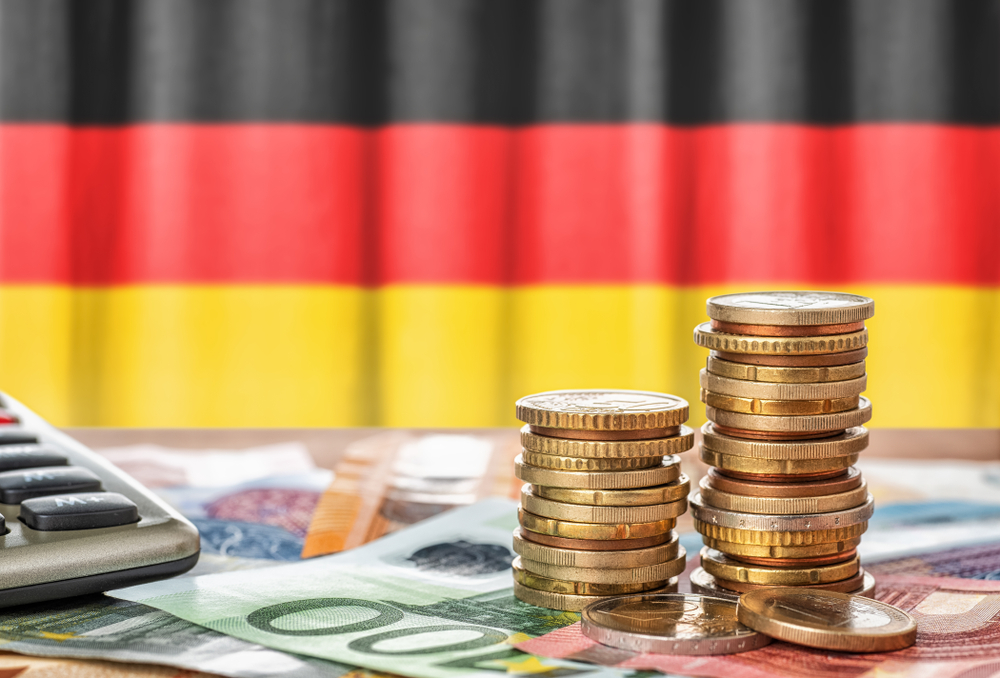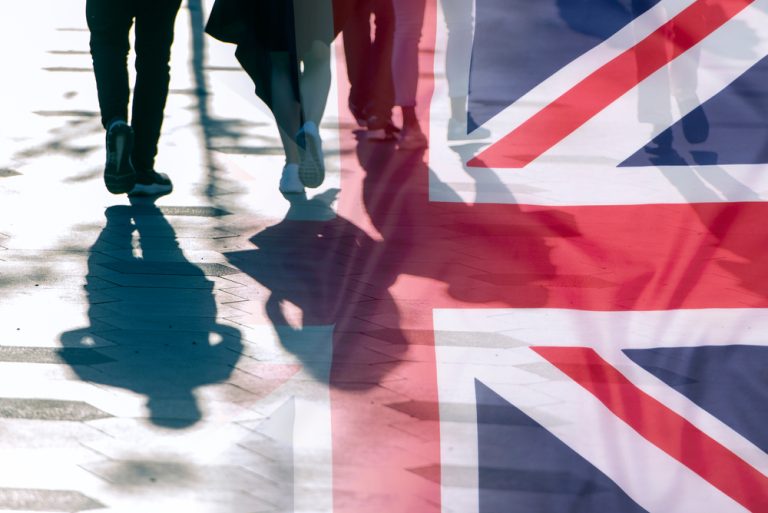
The German economy continues its downward path
For the first time after many decades of prosperity, Germans faced economic difficulties. Indeed, after the spring of 2022, the German government’s unprepared and reckless sanctions policy brought inflation in the country which reached a century-old high of 7.9%. It seemed at the time that this was only a temporary blip and the situation would normalize within a few months, but further developments have not lived up to these expectations. Olaf Scholz’s government failed to find a reliable and inexpensive source of substitute oil and gas from Russia during the year, and rising energy prices have repeatedly triggered new waves of inflation and economic decline. The maximum the officials could do was to advise the population on how to save water and electricity in order to save the country from the crisis. The overall situation in the global and European economy did not bring any optimism either, which made it clear that recession is inevitable and could last for many years.
In addition to purely financial problems, Germany was hit by a wave of deindustrialization, which suited its competitors in both the United States and China. The results of this state of affairs were quite predictable, and the scale of the problems had not only not diminished but even worsened by the autumn. As a result, inflation in Germany was again at a record of 10% in September 2022, and the population, unaccustomed to crises, became clearly aware that the steady growth of the German economy becomes a pleasant fairy tale from the past against the background of the brutal present. The ministers promised to do “as much as possible,” but the citizens were turning into pessimists and did not expect anything good from the winter of 2023.
Alas, in many ways this is exactly what happened. Inflation in Germany seems to have no intention of going down. According to harmonized standards, in January this year, the inflation was 9.2% and was accelerated from the 8.6-8.7% of the past month. This means that prices in Germany as a whole rose by almost 10% year on year, and the positive change since the fall is negligible. Obviously, officials have failed to implement effective economic and monetary measures that could have reduced it. Moreover, the energy crisis is far from being over and it is also not possible to overcome the global causes of the crisis. Energy and food prices have a big impact on inflation, but not the main one, based on the fact that when gas prices go down, inflation remains at 8.5-9%. It is also important to understand that despite the collapse of energy rates at the beginning of 2023, they still remain significantly higher than the last stable year of 2021.

The statistical office also published revised inflation figures for previous months: in November 2022 it was 8.8%, and in December it was 8.1%, so it is clear that there is no downward trend. The most expensive items for German households in January, as in the entire previous year, were energy and food. Despite government subsidies, energy prices rose 23.1% in January compared to January 2022. If energy were excluded from the inflation calculations, it would have been 7.2% in the first month of the year, which is still a colossal value compared to prosperous times. After all, food prices also rose by 20.2% over the year in January, and the rate of increase in food prices was again more than double the rate of overall inflation. Prices of goods in January rose by 12.7% year on year, prices of services by 4.5%, and economic experts expect their growth to continue in the spring.
Other indicators also signal problems, such as the national debt, which used to be insignificant in Germany compared to most of Europe. Annual payments on this debt for Germany have increased tenfold since the beginning of 2021: from 4 to 40 billion euros, as announced by the country’s Finance Minister Christian Lindner. He was surprisingly frank and added that “this is money that in the future we will miss for other purposes: education, digitalization and investments in climate protection”. At the same time, the Chamber of Accounts informs that the country’s debt curve is getting out of control, and the debt itself, which is already more than €2 trillion, as well as the payments on it, will grow regularly. This has even caused Lindner and Federal Minister for Economic Affairs Robert Habeck to squabble because the latter wants money for various promised infrastructure projects that are trivially absent from the budget. The finance minister insists that all the extra money should not be spent on expensive projects, especially in the field of “green energy” and other populist nonsense, but on servicing the foreign debt in order to manage it efficiently.
Nor has it been possible to stop the exodus of industries from Germany, driving the country deeper and deeper into recession. The same Economy Minister Robert Habeck visited Washington to negotiate the repeal of the so-called “Inflation Act,” which gives huge benefits to industry and encourages German businesses to move across the ocean to the United States. In crisis-inflationary Germany, the government cannot provide such benefits, but Habeck said he would be able to find a way to persuade the Americans to find another “compromise” over the next few weeks that would suit the German side as well. However, the hope of an alliance between Washington and Berlin and, in Habeck’s words, a “commonality in the fight against the climate crisis” is not yet working, and the Biden administration is in no hurry to change its previous decisions. If things go on like this, Germany risks saying goodbye to the league of leading industrialized nations in the coming years, a view shared by many prominent German opposition politicians, such as leftist Sahra Wagenknecht. In light of these developments, Saxon Prime Minister Kretschmer even called Habeck the “minister of deindustrialization”. The ordinary taxpayers, who had hoped for a serious reduction in their own energy costs, are unhappy with Habeck, since the Minister for Economic Affairs has not kept its promises. Instead, the green transition and elimination of coal-fired power plants, which many European countries have long since abandoned, continues with the fanaticism of madmen. “We are on the right track. Discipline and consistency are required now,” says Habeck, again demanding savings from ordinary Germans amid growing energy shortages.
In such a situation, Germans trust officials less and less and believe in a brighter future. According to a recent Allensbach survey, 80% of all Germans believe that the state is holding back its development because of excessive bureaucracy. Also, fewer and fewer Germans believe in a good economic future for their country. Only 39% of Germans believe that Germany will remain one of the leaders of the world economy in 15 years, while only a few years ago this figure was almost 60%. Half of Germans believe that many things in their country are no longer functioning properly and only 14% of residents believe that Germany has become stronger after the crises of recent years. Also worrying is the fact that 68% of Germans are dissatisfied with the level of digital progress in the country. However, German small and medium-sized businesses are suffering just as much, and the number of company bankruptcies in the country is on the rise. In December 2022, they were 3.1% more than in November, and in November there was an increase of 1.2% compared to October – such data was published by the Federal Statistical Office. From January to October 2022, 1888 companies went bankrupt in Germany. At the same time, there were 17.6% more bankruptcies in September 2022 than in September 2021 and there was a 17.9% increase in October. Experts cite the war in Ukraine and rising energy prices as the reason for many bankruptcies. Nevertheless, experts note that at the moment the number of bankruptcies of companies is far from critical and does not pose a threat to the country’s economy, but this is only for now.

Scholz’s government ministers act as if there is no crisis and they are living in a benign 2014 before the migration crisis, COVID-19 and the Ukrainian conflict. This perception does not allow them to make adequate decisions. The “green” minister of economy and “deindustrialization,” Habeck, for example, is once again proposing initiatives that only exacerbate the financial situation and energy crisis. According to him, oil and gas heating in German households is about to be banned, and a complete legal phase-out is scheduled for 2045. Starting next year, it will be impossible to use new heaters on fossil fuels, and violation of this ban will threaten citizens with fines. Officials’ measures to support big industries are unfortunately also ineffective. Because of the economic problems, the world’s biggest chemical concern BASF is going to cut 2,600 jobs around the world, and 65% of them will be in Germany. BASF will also have to close one of its ammonia plants in Germany due to the country’s economic problems and soaring energy prices. In this way, the group wants to save €500 million a year and modernize its main plant in Ludwigshafen to make it more competitive.
The mass exodus of businesses from Germany has also affected the fact that the Center for Economic Research of the EU has given the country only 18th place out of 21 in the evaluation of the conditions for economic activity of industrial businesses on its territory. “As a platform for industry, Germany has lost dramatically in quality,” the center said in a statement. Such negative changes were determined by bureaucracy, tax burdens, high energy costs and a shortage of workers. For example, neighboring Switzerland is in 4th place in this ranking, while Austria is in 13th place. In addition to the issue of corporate lending, according to experts in other areas so far Germany cannot compete with the leading regions of North America, Western Europe or Scandinavia. To reassure Germans, Olaf Scholz was quick to say that “Germany is not an impossible platform for business. Contrary to these optimistic hopes, however, in January Thomas Schulz, CEO of the construction company Bilfinger, reported that his customers are asking us to help them relocate production, primarily to the United States, and the head of the chemical company Lanxess, Zachert, sadly noted that “we are no longer competitive in Germany”.
In Germany today, pessimism grips employees and employers alike and the new year has begun with gloomy forecasts. The IW Institute of Economics surveyed German businesses and found that 40% of companies expect a recession. The most negative sentiment is in the construction sector and industry. Among the construction companies 54% of the respondents are expecting a decline of their economic indicators. The pessimists still prevail in industry as well, although Tagesschau reports that things are not as bad as was thought back in October. So far, the relatively warm winter, which prevented energy prices from finally flying into space, saves the day. There are optimists about the development of the consumer sector. According to Professor Monika Schnitzer from the Economics Expert Council, the inflation rate will fall from 8-9% to 7.4% in 2023, but it will take at least two years for the price of goods to fall. However, practice shows that such positive forecasts were made in the spring, summer and fall, but they did not come true. The German economy will continue to be agitated with a high probability and the only question is whether the disease will be stubbornly harder or whether the problems will grow month by month.

